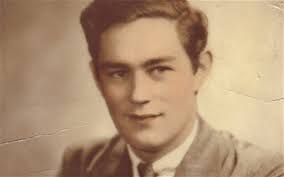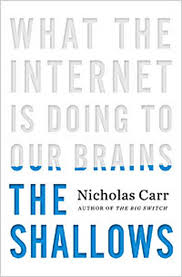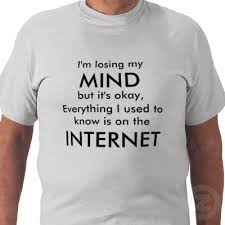 One of the most studied patients in neuropsychological history, from 1957 until his death in 2008, was a patient known through his life only as ‘H.M.’ , but after whose death in 2008, we now know as Henry Molaison.
One of the most studied patients in neuropsychological history, from 1957 until his death in 2008, was a patient known through his life only as ‘H.M.’ , but after whose death in 2008, we now know as Henry Molaison.
H.M. did not mind the intense scrutiny he received from all sorts of researchers, for he suffered from one of the most severe forms of anterograde amnesia ever recorded. Unlike the more common retrograde amnesia, wherein one cannot recall past memories, with anterograde, one cannot form new memories. H.M. would greet you happily, converse and smile. Then, the next day, or in the next ten minutes, he would act as though he was meeting you all over again. His life was one perpetual Groundhog Day, but, unlike Bill Murray’s character, he was not aware of it.
Here is the story: As a child, H.M. suffered a massive brain trauma, after which he developed incurable and incapacitating epilep tic seizures, one of the treatments for which (even to this day) is to excise the damaged parts of the brain causing the seizures. So, in 1953, H. M. underwent radical brain surgery that removed, most tragically as we would soon discover, both of his hippocampi, two small little organs located just under the temporal lobe, which gets its name from its resemblance to a sea-horse.
tic seizures, one of the treatments for which (even to this day) is to excise the damaged parts of the brain causing the seizures. So, in 1953, H. M. underwent radical brain surgery that removed, most tragically as we would soon discover, both of his hippocampi, two small little organs located just under the temporal lobe, which gets its name from its resemblance to a sea-horse.
After the surgery, it was discovered that H.M. could not form new explicit memories (that is, those we can recount, as opposed to, say, implicit memories like motor skills). He would greet you heartily, then forget all about it soon after you had introduced yourself.
Without his memory, H.M. lost a large part of his identity. After all, if you cannot recall things, how are you, ‘you’? There is a forgettable film (with Ben Affleck) wherein the main protagonist is allowed to go on fantastic vacations; the only rub is that he must have his memory swiped afterwards. So he had a blast, but cannot recall it. Did ‘he’ really go on holiday?
The great Pope Saint John Paul II called his own mini-biography, published in 2005 just before his death, ‘Memory and Identity’. In a very real and fundamental way, we are our memories, allowing us to extend our identity from the effervescent and ever-fleeting present into the past, and into the future.
The claim made by Nicholas Carr is that the Internet is turning us all into mini-versions of H.M., attenuating our capacity to form new ‘memories’, at least of the long-lasting, deep variety, making our minds, our thoughts and our very identities ‘shallow’.
Such a claim on the effects of technology is not new. Back in the 5th century B.C., in the Phaedrus, the philosopher Plato has Socrates declaim on the deleterious effects of writing, using the king of Egypt, Thamus, arguing against Theuth, the inventor of the alphabet, : Theuth claims that writing will ‘increase memory and make the people of Egypt wiser’. Not so, claims Thamus: Rather, “it will implant forgetfulness in their souls: they will cease to exercise memory because they rely upon what is written, calling things to remembrance no longer from within themselves, but by means of external marks”. The written word is “a recipe not for memory, but for reminder. And it is not true wisdom that you offer your disciples, but only semblance…those who rely on reading will “seem to know much, while for the most part they know nothing”
Carr argues that Socrates was being a bit of a gadly, as was his wont, for although it is perhaps possible to use (or not use) books in a way that diminishes our mind’s capacity, they are, as we will see, by far a much more beneficial aid than a liability to reasoned, deep-seated thought, as we have discovered since the invention of the printing press by Gutenberg.
 But the technology of the Internet is a whole different ball game, one which Carr argues is truly reducing our capacity to remember and to think, to store and interconnect ideas and concepts, which are the hallmarks of wisdom and intelligence.
But the technology of the Internet is a whole different ball game, one which Carr argues is truly reducing our capacity to remember and to think, to store and interconnect ideas and concepts, which are the hallmarks of wisdom and intelligence.
Carr’s argument goes back to 1885, when the psychologist Ebbinghaus taught himself to memorize 2000 nonsense words; what he found was that it was easier to learn a half dozen words in a sitting than a dozen. Some would slip away from memory very quickly, while others would linger for a while. Eventually, the words would stay in his memory, and not be forgotten, but only after constant focus and repetition.
Subsequent research based on Ebbinghaus’ self-study discovered that there were basically two kinds of memory: Short-term, which quickly fades, and is able to hold up to about seven ‘bits’ of information (which is why phone numbers are, or were, usually this long). And long-term memory, which lasts for much longer, days, weeks or even one’s entire life, depending on how consolidated it is.
It is essential to learning, and the acquisition of knowledge, that information be transferred from short to long term memory. As Carr puts it:
The depth of our intelligence hinges on our ability to transfer information from working memory to long-term memory and weave it into conceptual schemas. But the passage from working memory to long-term memory also forms a major bottleneck in our brain. Unlike long-term memory, which has a vast capacity, working memory is able to hold only a very small amount of information (p.124)
So far, so good. But what has this to do with the Internet?
Research has demonstrated that the transfer from short to long term memory requires that we focus on the material we are learning, rehearse it, ponder upon it, connect it with other things we remember, ‘weaving’ the material into ‘conceptual schemas’, which comprise the overall capacity of our intelligence.
The key to memory consolidation is attentiveness. Storing explicit memories and, equally important, forming connections between them requires strong mental concentration, amplified by repetition or by intense intellectual or emotional engagement. (p. 193)
Without such attentiveness, if we are distracted and flitting about with our minds, we will never learn. All of what we think we are ‘learning’ will remain in short-term memory, and disappear soon afterward.
And Carr argues, quite convincingly, that the Internet is inherently distracting. In fact, the whole technology is built upon the process of distraction, of skimming for information, inhibiting the focused attention necessary to weave things into long-term memory.
Here is Irene Au, the Director of ‘User Experience’ at Google:
Our goal is to get users in and out really quickly. All our design decisions are based on that strategy”
Carr backs up his argument with the physiology of learning: Our brains are made of cells, termed ‘neurons’, connected by axons and dendrites,which intercommunicate via molecular chemical signals we term neurotransmitters. These chemical signals flow across a ‘synapse’, a gap between the cells, causing them to fire and send an electro-chemical signal. By a process not yet fully understood, after a number of repetitive firings of the same synapses, permanent anatomical changes are produced in the brain, with the extension of, and greater interconnectivity between, the dendrites. The hippocampus seems to be the anatomical ‘gateway’ of this process, holding information in short term storage, as it is consolidated deeper within the cortex.
Here is the rub: What we have discovered of late is that short-term memory is chemical, based on the transient, and quickly dissolving, release of neurotransmitters. Long-term memory, on the other hand, is anatomical, based on new, and more-or-less permanent connections between neurons.
Thus, we may discern a physiological spectrum to memory, from short term, which is easily forgotten, such as people’s names at cocktail parties, to long term, which ‘resides’ somehow in the neuroanatomical structure of the brain itself. To move our thoughts from short to long term memory is the process of ‘memory consolidation’. What we do know, as Carr makes clear, is that
short-term memory produces a change in the function of the synapse, strengthening or weakening preexisting connections; long-term memory requires anatomical changes (p. 185)
Thus, what determines what we remember and what we forget is this very consolidation, which requires focus and attentiveness, some level of ‘deep reading’.Without this, our memories dissolve quite literally in a neurotransmitter chemical soup, somewhere perhaps deep in our hippocampi.
If we are in a state of near-permanent distraction, we diminish our capacity to transfer information from short to long term memory. And the Internet is designed by its very nature (which is to say, by its creators and administrators) to distract you, both your emotions and your will. Ponder Google and Facebook, which make no bones about wanting to know as much about you as possible for their ‘files’, and the more you click or swipe, the more they know.
Even if you try to focus on one thing, you know there are email, updates, texts, just a finger click away, even if you turn off all notifications. Unlike a sturdy, steady book, the screen before you is a chameleon, that can be many things, a movie, a YouTube clip, your email, a photo, a Wikipedia page, a hyperlink, music, Skype; the possibilities are endless, and inherently distracting.
Some try to argue that the Internet allows for a greater extension of knowledge and, after all, what is wrong with off-sourcing our memories to allow for more, ah, ‘creative’ thoughts?
 Alas, much. For, to return to the beginning, it is our memories that make us who we are. If our memories are all off-sourced, then who really are we? Is this why Millennials are so possessive of their phones, because their technologies have quite literally become them? If you lose your ‘device’, have you lost a part of yourself? Is this why we no longer converse, neither on the phone, nor, in person? Why we are losing our culture, our imaginations, and why we are so easily led? Have we lost our capacity to think deeply, which, almost by definition, requires memory?
Alas, much. For, to return to the beginning, it is our memories that make us who we are. If our memories are all off-sourced, then who really are we? Is this why Millennials are so possessive of their phones, because their technologies have quite literally become them? If you lose your ‘device’, have you lost a part of yourself? Is this why we no longer converse, neither on the phone, nor, in person? Why we are losing our culture, our imaginations, and why we are so easily led? Have we lost our capacity to think deeply, which, almost by definition, requires memory?
Carr does not delve into these deeper philosophical questions, but we may use his book, and the scientific research which he references, as a starting point for us to do so. His conclusions are fully in line with the Catholic and Thomistic doctrine of human persons as body-soul composites. As Saint Thomas puts it, it is neither the body nor the soul that act, but the person, body and soul. So we should not be surprised that our minds have a physical substrate, and that developing our minds and our memories, our very selves, requires focus, attention, effort and concentration, akin to physical exercise. Without these, our minds will remain largely empty or, at the very least, shallow.
